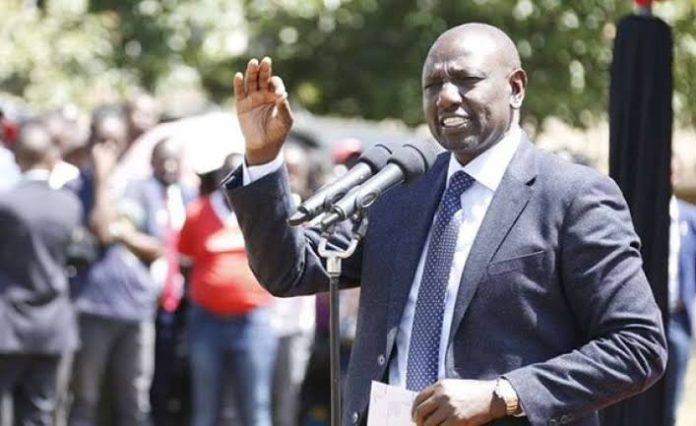Facebook Twitter (X) Instagram Somali Magazine - People's Magazine
President William Ruto’s recent decision to eliminate a long-standing verification process for issuing national identification cards to ethnic Somalis in Kenya has ignited intense political and security debates across the country. The policy change, which removes additional vetting requirements that had been in place for over six decades, is part of Ruto’s broader agenda to unify the nation and fulfill his campaign promises.
During his visit to the northeastern counties of Garissa, Mandera, Wajir, and Isiolo, Ruto announced the end of the controversial vetting process and reopened the long-closed Garissa immigration office. This move has been met with mixed reactions, with supporters hailing it as a step toward equality and opponents warning of potential security risks.
Former police spokesperson Charles Owino defended the president’s decision, arguing that the vetting process had fostered corruption rather than enhancing national security. He highlighted how officials had used the system as an avenue for bribery and extortion, making it difficult for many ethnic Somalis to obtain national IDs. Owino emphasized that Kenya’s standard ID registration process already includes sufficient verification procedures, making additional scrutiny unnecessary. He also pointed out the logistical challenges Somalis faced under the old system, particularly those raised in urban areas who were forced to travel back to their ancestral villages for vetting.
“You find an individual who went to primary school, high school, and university in Nairobi, yet his children are sent to Mandera to be vetted. They were born here, and their documents read here,” Owino stated, calling the system outdated and discriminatory.
However, critics argue that the removal of the vetting process poses significant security risks. Trans Nzoia Governor George Natembeya, a former Rift Valley regional commissioner, warned that the change could make it difficult for the government to distinguish between Somali nationals from Somalia and Kenyan-born Somalis. Given the shared language, culture, and religion, he questioned how authorities would now verify national identity effectively.
“If people can obtain IDs without verification, how do we distinguish between a Somali from across the border and a Kenyan from Wajir, Garissa, or Mandera?” Natembeya asked, underscoring security concerns raised by the opposition.
Opposition leader Kalonzo Musyoka has also condemned the reform, accusing Ruto of using it as a political tool to boost voter registration ahead of the 2027 elections. Speaking in Kilifi, Musyoka alleged that the president was strategically expanding his political alliances through the policy shift.
“This man is panicking. He thinks he can register voters here and there by providing people with IDs. I assure you that those who benefit from this will be the first to turn against him. Everyone is struggling, just like the others,” Musyoka said, framing the move as an attempt to manipulate the political landscape.
Despite the political backlash, many regional leaders have welcomed the reform, describing it as a long-overdue correction to systemic discrimination against ethnic Somalis in Kenya. Wajir Deputy Governor Ahmed Mohamed Abdi (Caato) emphasized that the vetting process had unfairly marginalized Somali communities and made it difficult for them to access national identification.
“Somalis are a nomadic people who frequently move, and obtaining ID cards has always been a challenge. The removal of these restrictions is long overdue and brings equality to the process,” he told the BBC, arguing that security concerns should not be conflated with identity documentation.
Faruk Kibet, a senior aide to Ruto, dismissed the concerns raised by critics, accusing them of using the issue to stir ethnic divisions for political gain. He insisted that the reform was not about voter registration or security risks but about ensuring fairness in government services.
“Those criticizing this move are playing tribal politics. They are attempting to divide the country along ethnic lines for political gain,” Kibet said, defending the president’s decision.
The debate over the ID reform reflects broader tensions in Kenyan politics, where ethnic and regional divisions often shape policy discussions. As the country moves toward the 2027 elections, the controversy surrounding Ruto’s decision is likely to remain a key point of contention between his administration and the opposition. While the policy has been praised for dismantling discriminatory barriers, questions remain over its implications for national security and electoral dynamics.

